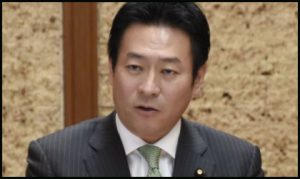In Japan and five sitting members of the nation’s House of Representatives are reportedly under investigation concerning allegations that they may have accepted bribes from a Chinese firm interested in bringing an integrated casino resort to Hokkaido or Okinawa.
According to reports from Inside Asian Gaming and GGRAsia, the Tokyo District Public Prosecutor’s Office has reportedly voluntarily questioned the quintet after seeing an internal memo from Shenzhen-headquartered casino hopeful 500.com that seemed to suggest each were illicitly paid around ¥1 million ($9,200).
Quintuple trouble:
Inside Asian Gaming reported that the under-suspicion legislators encompass the ruling Liberal Democrat Party’s Masahisa Miyazaki, Takeshi Iwaya, Hiroyuki Nakamura and Toshimitsu Funahashi as well as Mikio Shimoji from the opposition Japan Innovation Party. All five are purportedly alleged to have received the cash from former 500.com advisors Katsunori Nakazato and Masahiko Konno between September and October of 2017 as part of that firm’s campaign to win one of Japan’s coming trio of integrated casino resort licenses.
Preceding probe:
GGRAsia reported that the new bribery allegations came to light as part of an ongoing investigation into prominent Liberal Democratic Party politician Tsukasa Akimoto (pictured). Arrested by the Tokyo District Public Prosecutor’s Office on Christmas Day, this 48-year-old legislator had been serving in the cabinet of Japanese Prime Minister Shinzo Abe and is alleged to have accepted approximately ¥3 million ($27,700) from 500.com.
Expanded examination:
Japan’s Political Funds Control Law reportedly prohibits politicians from accepting donations from most foreign firms while the Tokyo District Public Prosecutor’s Office is said to be widening its inquiry after recently receiving permission to hold Akimoto and three others with alleged ties to the 500.com bribery scheme until January 14.
Fruitless foray:
Paradoxically, the alleged ¥8 million ($74,000) outlay from 500.com has ultimately been in vain as both of its preferred locations have since reportedly pulled out of the race to secure an integrated casino resort license. Voters in Okinawa Prefecture purportedly elected a new anti-gambling governor in late-September while Hokkaido Prefecture abandoned its effort a month later over concerns that its preferred site was too close to a wildlife sanctuary.
Fervent rejections:
For their part, the five legislators have reportedly proclaimed that they are innocent of any allegations of impropriety with 62-year-old Iwaya, who was Japan’s Defence Minister until September, declaring that he was willing to ‘swear by all that is sacred that I have not been involved in any wrongdoing.’
Iwaya reportedly stated…
“I absolutely deny it. From the perspective of laws regulating political funds as well, it’s impossible that I received donations from a foreign firm.”
Inside Asian Gaming reported that Funahashi countered the  bribery accusations by proclaiming that he had ‘not received any funds’ although Nakamura is said to have admitted to accepting a legitimate ¥2 million ($18,500) contribution from a representative of a Sapporo-based tourism company in September of 2017.
bribery accusations by proclaiming that he had ‘not received any funds’ although Nakamura is said to have admitted to accepting a legitimate ¥2 million ($18,500) contribution from a representative of a Sapporo-based tourism company in September of 2017.
Nakamura reportedly later explained…
“I accepted a legitimate political donation and included the money in a political funds report.”
Internal inspection:
New York-listed 500.com is an online sportsbetting firm and it reportedly announced on December 31 that it had accepted the resignation of its Chairman, Xudong Chen, and would be launching a special investigation into the ‘alleged illegal money transfers’. The company’s Chief Executive Officer, Zhengming Pan, subsequently explained that he would be temporarily stepping down ‘in order to ensure a thorough and fair investigation’ could be conducted.



